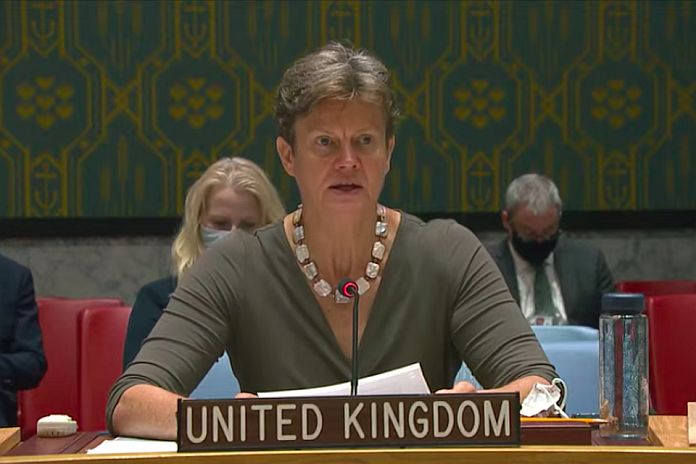Statement by Ambassador Barbara Woodward at the Security Council briefing on non-proliferation
By Ambassador Barbara Woodward
I would like to start by welcoming the secretary-general’s eleventh report and to thank the Secretariat for their continued professionalism and support they provide to the secretary-general in enabling production of this report. We also thank the facilitator and her team for their work on a balanced and accurate Facilitator’s report.
We support the secretary-general’s findings and remain committed to full implementation of the JCPoA and Resolution 2231. This is why we are engaging in talks in Vienna aimed at finding a diplomatic solution to revitalise and restore the benefits of the JCPoA. Our priority is for the US to return to the deal, to bring Iran back into compliance with its commitments and to restore the benefits of the deal for all. The talks cannot be open-ended and the time for reaching a decision is fast approaching. We cannot guarantee that the same terms for a deal will be on offer later in the year.
We remain deeply concerned at Iran’s continued violations of its nuclear-related commitments, including the escalatory steps taken since January 2021. Collectively, these steps present a significant nuclear proliferation risk, have irreversible consequences for Iran’s nuclear capabilities, and undermine the non-proliferation benefits of the JCPoA.
In this context, we are also concerned by the continued limits placed on the IAEA’s monitoring and surveillance activities in Iran. Iran must co-operate fully with the IAEA and grant unimpeded access to all relevant sites and activities to ensure the Agency can continue to fulfil its reporting mandate under resolution 2231.
2021 has also seen a continuation of Iran’s destabilising activity around the Middle East, including activities that are inconsistent with resolution 2231. Iran’s Ballistic Missile technologies pose a threat to regional security, including as a potential delivery system for weapons of mass destruction.
We welcome the talks between Saudi Arabia and Iran. Dialogue is the cornerstone for the de-escalation of regional tensions. We note Iranian president-elect Raisi’s comments on June 18, stating that his administration is open to continuing dialogue with Saudi Arabia. We urge all regional partners to engage constructively to improve the security and prosperity of the region.
We call upon president-elect Raisi to set Iran on a different course. He can do this by addressing concerns about Iran’s nuclear programme, putting an end to Iran’s destabilising activity and human rights abuses, and releasing British nationals detained in Iran.
Upholding the nuclear non-proliferation regime, ensuring the authority and integrity of the Security Council and improving regional security should remain our shared objectives.





